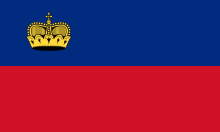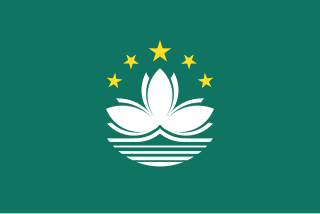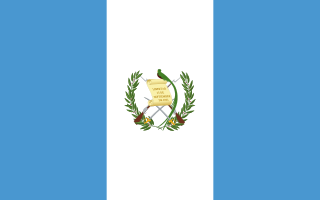| Liechtenstein at the Paralympics | |
|---|---|
 | |
| IPC code | LIE |
| NPC | Liechtensteiner Behinderten Verband |
| Medals |
|
| Summer appearances | |
| Winter appearances | |
Liechtenstein made its Paralympic Games début at the 1984 Summer Paralympics in Stoke Mandeville and New York City, entering just one athlete (Iris Schaedler) in athletics. The country competed again at the 1988 and 1992 Summer Games, and at the 1992 and 1994 Winter Games. It was then absent from the Paralympics until the 2004 Summer Games in Athens, where it sent just one table tennis player, Peter Frommelt. Liechtenstein was absent from the 2006 and 2010 Winter Games and the 2008 Summer Games. [1]

Liechtenstein, officially the Principality of Liechtenstein, is a doubly landlocked German-speaking microstate in Alpine Central Europe. The principality is a constitutional monarchy headed by the Prince of Liechtenstein.

The Paralympics is a major international multi-sport event involving athletes with a range of disabilities, including impaired muscle power, impaired passive range of movement, limb deficiency, leg length difference, short stature, hypertonia, ataxia, athetosis, vision impairment and intellectual impairment. There are Winter and Summer Paralympic Games, which since the 1988 Summer Games in Seoul, South Korea, are held almost immediately following the respective Olympic Games. All Paralympic Games are governed by the International Paralympic Committee (IPC).

The 1984 International Games for the Disabled, canonically the 1984 Summer Paralympics were the seventh Paralympic Games to be held. They were in fact two separate competitions – one in Stoke Mandeville, United Kingdom for wheelchair athletes with spinal cord injuries and the other at the Mitchel Athletic Complex and Hofstra University in Long Island, New York, United States of America for wheelchair and ambulatory athletes with cerebral palsy, amputees, and les autres [the others]. Stoke Mandeville had been the location of the Stoke Mandeville Games from 1948 onwards, seen as the precursors to the Paralympic Games. As with the 1984 Summer Olympics, the Soviet Union and other communist countries except China, East Germany, Hungary, Poland and Yugoslavia boycotted the Paralympic Games.
Contents
Liechtenstein has won a single Paralympic medal: a bronze in alpine skiing in 1994. [2]
Liechtenstein is the second smallest sovereign country, and the third smallest National Paralympic Committee (after Macau), ever to have competed at the Paralympic Games - as Tuvalu, Nauru, Monaco and the Vatican City have yet to do so. [3]

A National Paralympic Committee (NPC) is a national constituent of the worldwide Paralympic movement. Subject to the controls of the International Paralympic Committee (IPC), NPCs are responsible for organizing their people's participation in the Paralympic Games.

Macau's Paralympic Committee was founded in 1979, and the territory first competed at the Summer Paralympic Games in 1988. It has competed in every edition of the Summer Games since then, but has never participated in the Winter Paralympic Games.

Tuvalu, formerly known as the Ellice Islands, is a Polynesian island country located in the Pacific Ocean, situated in Oceania, about midway between Hawaii and Australia. It lies east-northeast of the Santa Cruz Islands, southeast of Nauru, south of Kiribati, west of Tokelau, northwest of Samoa and Wallis and Futuna, and north of Fiji. It comprises three reef islands and six true atolls spread out between the latitude of 5° to 10° south and longitude of 176° to 180°, west of the International Date Line. Tuvalu has a population of 10,640. The total land area of the islands of Tuvalu is 26 square kilometres (10 sq mi).
As in the Olympics, Liechtenstein is the only participating country to have won a medal only at the Winter Paralympic Games but not in the summer event.

The Winter Paralympic Games is an international multi-sport event where athletes with physical disabilities compete in snow & ice sports. This includes athletes with mobility disabilities, amputations, blindness, and cerebral palsy. The Winter Paralympic Games are held every four years directly following the Winter Olympic Games. The Winter Paralympics are also hosted by the city that hosted the Winter Olympics. The International Paralympic Committee (IPC) oversees the Winter Paralympics. Medals are awarded in each event: with gold medals for first place, silver for second and bronze for third, following the tradition that the Olympic Games started in 1904.

The Summer Paralympic Games or the Games of the Paralympiad, are an international multi-sport event where athletes with physical disabilities compete. This includes athletes with mobility disabilities, amputations, blindness, and cerebral palsy. The Paralympic Games are held every four years, organized by the International Paralympic Committee. Medals are awarded in each event, with gold medals for first place, silver for second and bronze for third, a tradition that the Olympic Games started in 1904.















